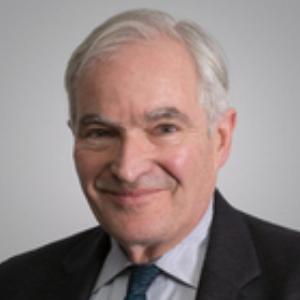
Submitted by Angela Walters on Wed, 21/02/2018 - 22:47
Rt Hon Lord Henley, Parliamentary Secretary of State for the Department of Business, Energy and Industrial Strategy, gave a speech on Smart Cities at Smart Cities UK 2018 in which he refers to the important work of the Centre for Digital Built Britain.
At the conference Lord Henley set out the Government plans in relation to recently published Industrial Strategy, specifically how to ensure that the UK is at the forefront of data transformation technologies. He mentioned that with the opportunities and challenges it is now a critical moment for the United Kingdom. The world is challenging and we have to ensure that we build the type of economy that gives us the global competitive edge. We have significant economic strengths on which to build and we need to make the most of the untapped potential right across the country.
Lord Henley referenced the four grand challenges in the Industrial Strategy White Paper that will affect us in the years to come; i) Artificial Intelligence (AI) and the Data Driven Economy; ii) Clean Growth; iii) The future of mobility; and iv) Meeting the needs of an aging society. For each of the four challenges Lord Henley went on to discuss how the Industrial Strategy sets out what we can do to help seize the opportunities these challenges present.
He emphasised the importance of AI with the establishment of a new AI Council that will be supported by a new government office for AI. This is anticipated will encourage greater uptake of AI and data analytic technologies, championing research and innovation that will be supported by the £10m Regulators Pioneer Fund, and also the investment of £45m in funding new PhDs, and over £400m to develop mathematical, digital and technical skills. Lord Henley gave reference to the the PWC estimate of an addition £230b for the economy by 2030 from the increased productivity allowed by the spread of AI and Data Analytics in all sectors of the economy.
During his speech Lord Henley discussed the challenges an aging population will bring to the UK and to the world. He identified Big Data as an area that can help address some of the issues of an aging economy, and the importance of supporting new projects and services an aging population will require. Worldwide there likely to be some 2billion people over the age of 60 by 2050 and so creating products to support an aging population will have clear social and commercial benefits. New innovations in transport, whether it is improved rail connections or driverless cars will make our country more connected than before, while automated vehicles could reduce congestion through higher density use of road space.
Lord Henley singled out infrastructure as an area in which the UK is recognised as a world lead – especially in the area of BIM. He specifically mentioned BIM as an area that improves performance, and stimulates more innovative and efficient ways of designing, creating and maintaining our built assets. During his speech Lord Henley particularly emphasised the importance of remembering the acronym of BIM to the audience, as he identified that it is already having a profound effect on how infrastructure is delivered and sits at the heart of the digital transformation across the UK built environment. He gave reference to the Government sponsorship of the CDBB programme at Cambridge University, which he notes is leading to further development of this technology. He concluded this section by outlining the importance of the underpinning commitment to clean growth – so that vehicles and systems of the future have to be of clean growth, low emissions and show we are committed to the goals set out in the Paris climate agreement. He went on to outline the importance of the commitment to low carbon technologies, identifying the large market this provides, again suggesting that we want other countries to learn from us where we have proven that clean growth is possible.
Lord Henley concluded by stating that the Industrial Strategy is there to respond to the changes we expect to see in the coming years, providing a proactive and optimistic response. At its core is detailed planning and real people. He says we are gearing for a time of great change and that in twenty to thirty years from now the world is going to look very different. Lord Henley believes that by seizing those opportunities, not just facing the change, but embracing it, we can ensure that the United Kingdom is the vanguard for decades to come.
